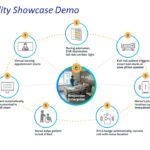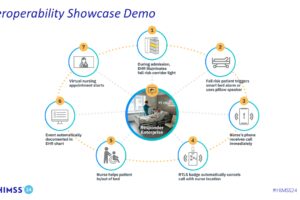When doctors first see output from Regard’s AI analytics, they often say, “This is what I imagined the electronic medical record would be like when I heard about it for the first time.” Regard scans the patient’s medical records to find buried data that might be relevant to current treatment, and prepares a doctor’s note with that information.
According to Eli Ben-Joseph, CEO and co-founder at Regard, their tool “amplifies and empowers doctors and nurses who use it to be the best they can be.”
Regard is also dedicated to reducing the administrative burden on clinicians, where so many tools ask them to do somethning extra. Regard does not require doctors to open a new window, but just click on a link in the patient’s record in Epic or Cerner. If the doctor has already writing a note, they can invoke Regard to add its insights.
Regard is also much bolder than most health care analytics firms by calling its output “deterministic,” meaning the clinicans use it for diagnosis.
AI analytics are trained on data from diverse sources to reduce the risk of bias, and the tools are vetted by doctors before being released for general use.
In the future, Regard plans to increase the scope of data available to its tools in the field. They want to allow clinical sites to share data, and patients to upload data from fitness devices.
Watch the video for more insights into how Regard works and its benefits.
Learn more about Regard: https://withregard.com/
Listen and subscribe to the Healthcare IT Today Interviews Podcast to hear all the latest insights from experts in healthcare IT.
And for an exclusive look at our top stories, subscribe to our newsletter.
Tell us what you think. Contact us here or on Twitter at @hcitoday. And if you’re interested in advertising with us, check out our various advertising packages and request our Media Kit.













